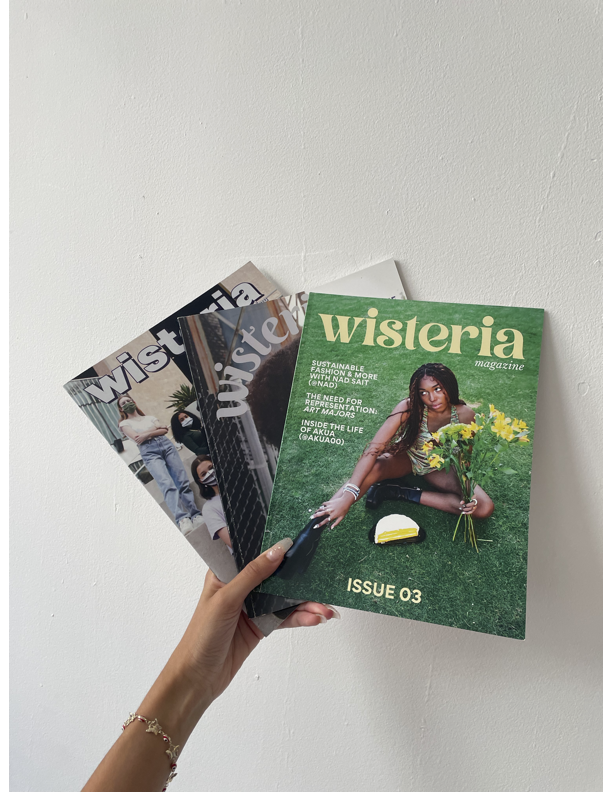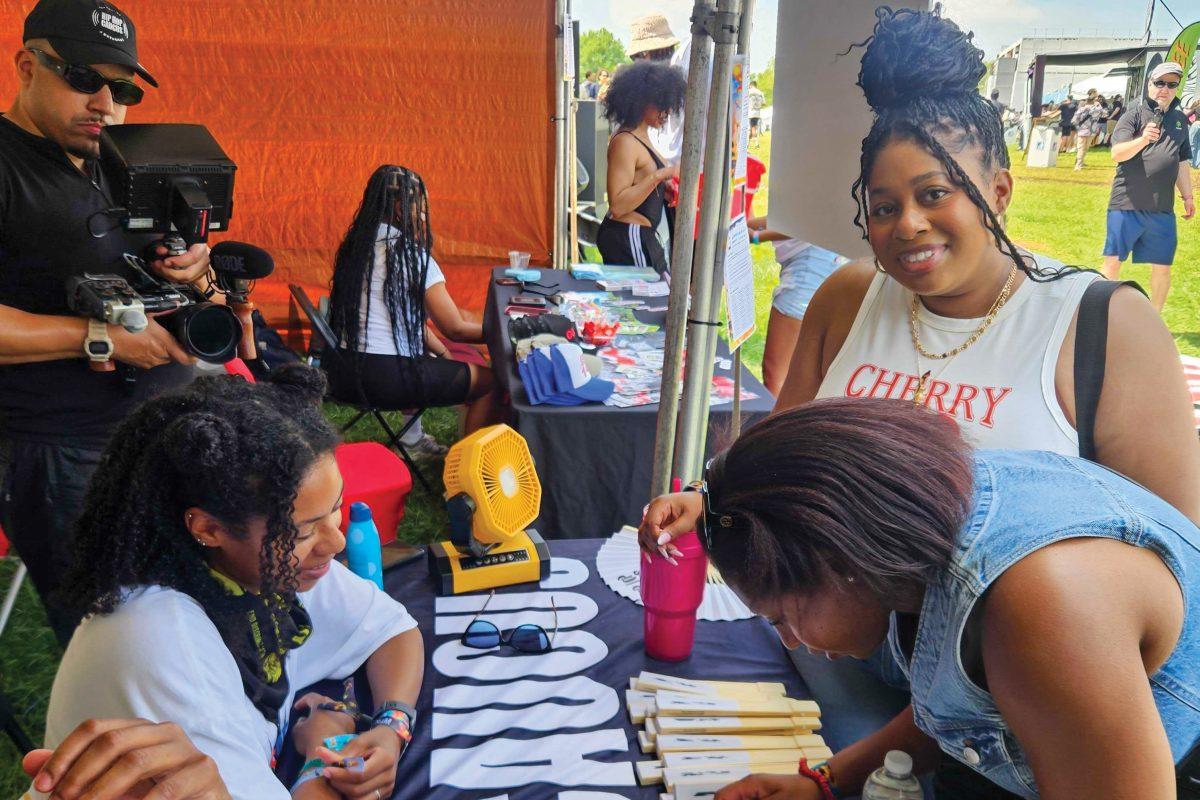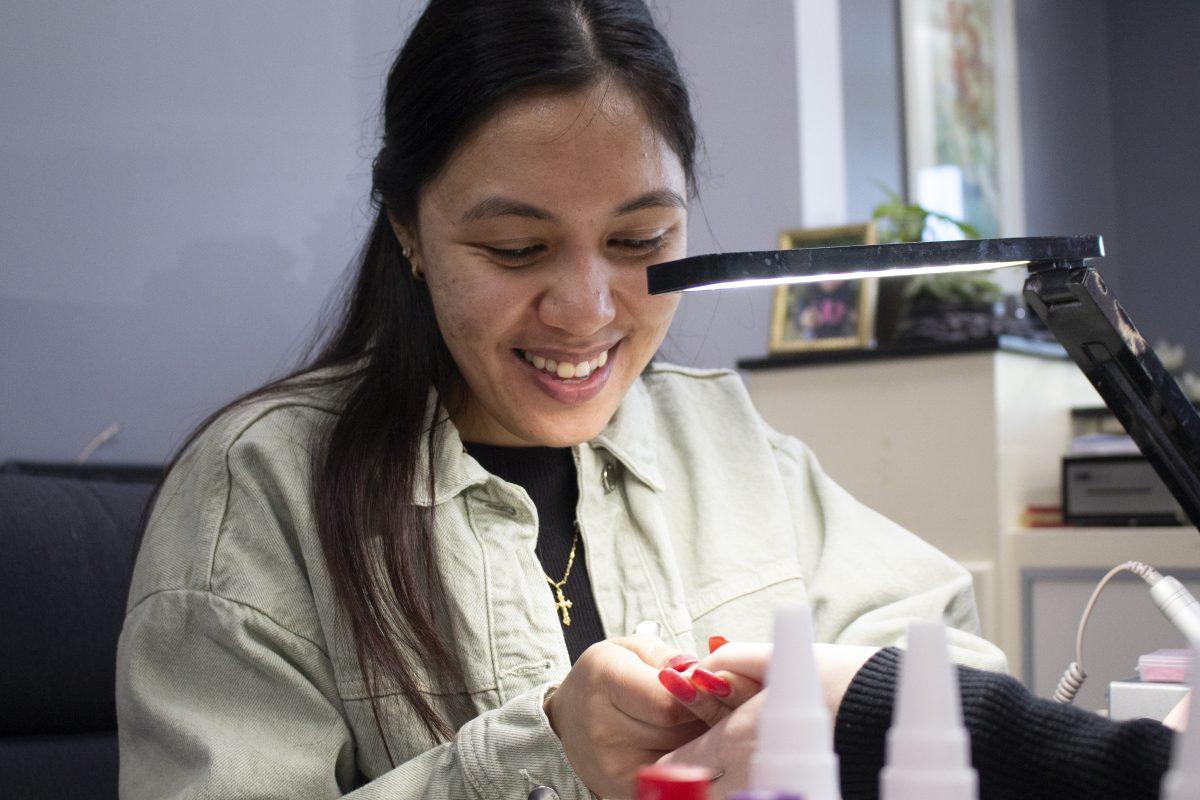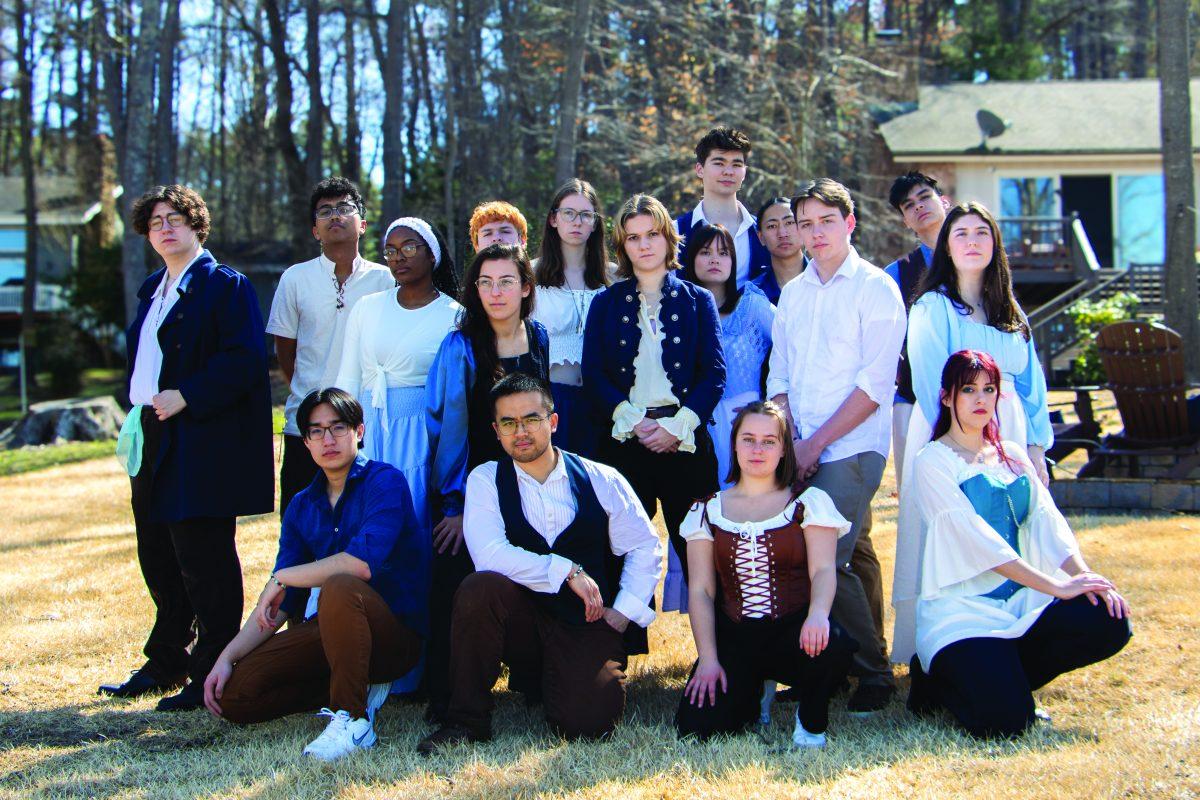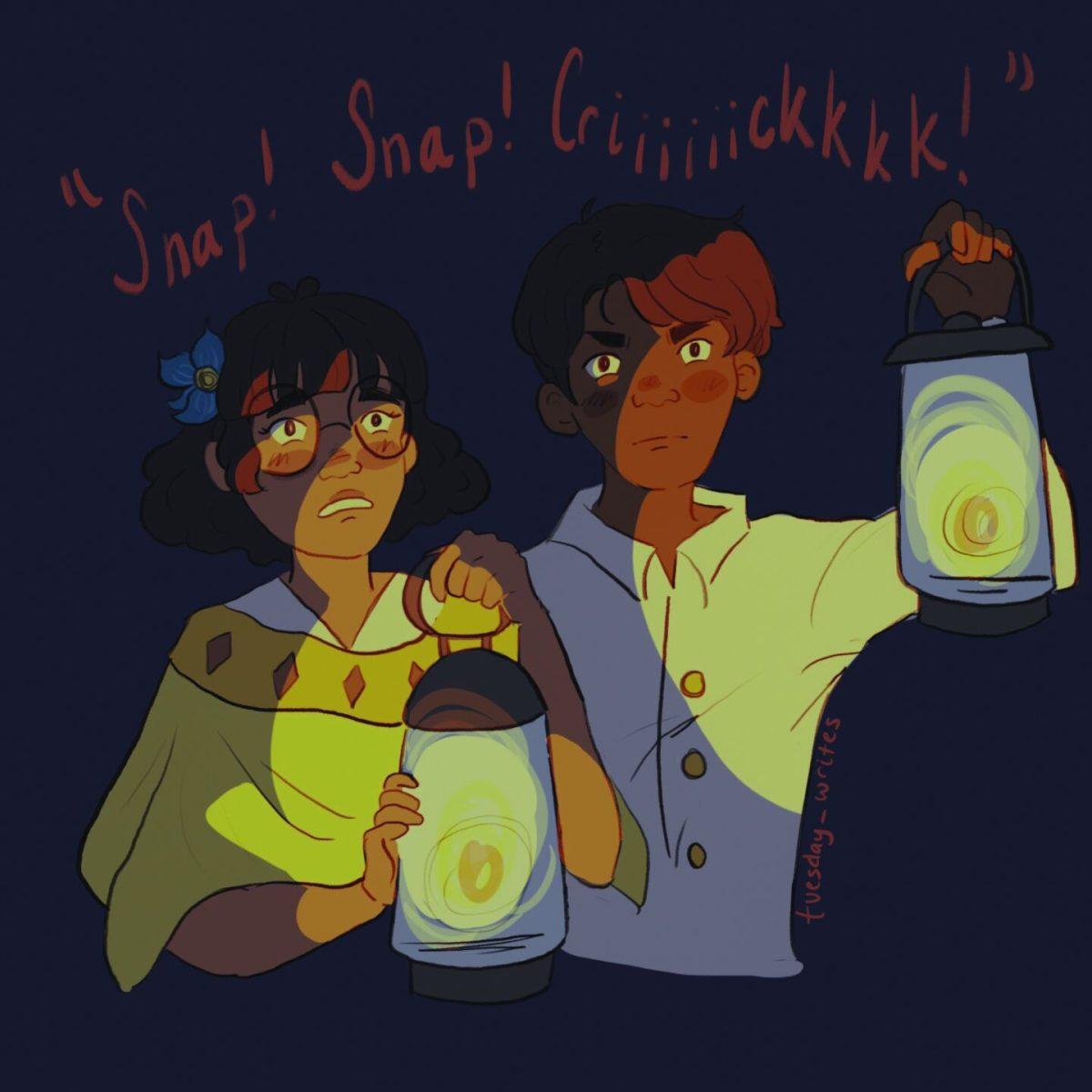Wisteria is a magazine founded by people of color, sharing the perspectives of marginalized groups through their art — led by a completely teenage team.
The idea to create a magazine was born in Charlotte, North Carolina in May 2020 by founder Morgan Lee, who originally took to Instagram to ask if anyone would be interested in creating a magazine.
Chief Operating Officer Spriha Manjigani said the motivation came as a result of 2020’s social climate, including the COVID-19 pandemic and the Black Lives Matter movement.
“I feel like we were feeling a lot of complacency within our peers, like people were seeing things but not doing anything about it — not even having those conversations,” said Manjigani. ”So I reached out to [Lee] and I was like, ‘How can I help, this seems like an initiative I can really get behind.’”
Now two years later, Wisteria has released three print issues. Each issue features submissions of varying forms of art, which amplify the voices and stories traditional media often overlook.
Suchi Jalavancha, Wisteria’s editor-in-chief and director, shared the magazine’s mission.
“Our goal is to uplift marginalized voices and their art, whether that’s art in a positive way, demonstrating their joy, or if it’s their oppression,” said Jalavancha. ”We want to tell the stories that are under-told that we don’t think mainstream media does an appropriate job of capitalizing [on].”
Although Wisteria’s team is younger than most, they are very comfortable exploring important and heavy topics.
Creative Assistant Katarina Sparling said age is no excuse for neglecting injustice.
“We’re old enough to be facing these issues, and I, as a white woman, am old enough to be watching my close friends and people I care about experiencing these issues,” Sparling said. “So it’s almost like an obligation to be at least, at the very minimum, talking about it, educating yourself about it and hopefully taking action against it.”
Jalavancha said the growth of Wisteria’s community is a highlight of her experience with the magazine. However, Sparling noted it has not come without challenges.
“I remember pretty early on, we made a post about putting your pronouns in your bio [on social media],” Sparling said. “And it blew up. It has over 90,000 likes now and thousands and thousands of comments. And I remember looking through these comments and seeing some of the most vile and nasty things being said, just incredibly offensive and purposely inflammatory things. I remember trying to go through and delete all of the worst comments, and being absolutely exhausted afterwards because of how much hate we were facing.”
Nonetheless, she also noted that despite some negative responses, the post had a very positive impact to the transgender community.
“We also had an overwhelmingly positive response,” Sparling said. “We had a lot of trans individuals commenting telling us how helpful the post was and how important they believe it was to help protect them from being targeted online.”
Wisteria took a short hiatus after its most recent issue, but in recent weeks the team has been gearing back up and is working towards issue 4, coming soon. Jalavancha said as the team has grown over the past two years, the magazine is evolving alongside it.
“We are trying to have Wisteria tap into the older audience as opposed to the younger audience that we had before,” Jalavancha said. ”We’ve all grown up a lot since we started and our audience has grown up as well.”
The team plans on continuing Wisteria no matter where their futures take them beyond high school or Charlotte. Manjigani said that she hopes to see Wisteria continue to grow.
“I personally can see myself doing this for a long time into the future,” said Manjigani.
To learn more, purchase issues or submit work, visit Wisteria’s website. You can also connect with Wisteria on Instagram.


